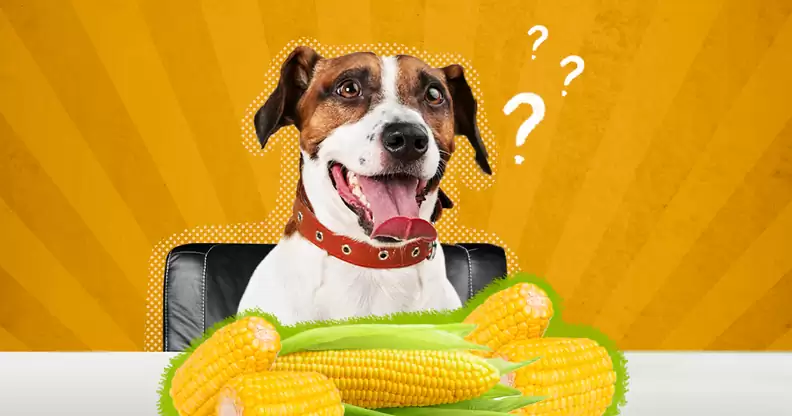“Can dogs eat corn?” is a question that comes up frequently when it comes to the food decisions we make for our dogs. This question has generated debates among veterinarians and pet owners, leading to a more thorough analysis of the advantages and safety of feeding corn to dogs. It is crucial to comprehend the subtleties of feeding corn to dogs to maintain their nutritional balance and overall well-being. Let’s examine the benefits, risks, and factors to take into account when giving corn to dogs.
The Nutrition Value of Corn For Dog
Given its nutritional value, corn is a mainstay in many diets. Corn can be beneficial to dogs’ health because it is high in fiber, carbohydrates, and important nutrients like magnesium and vitamin C. That being said, it is important to take into account how dogs are given their corn. Nutritious and palatable, fresh, cooked, or canned corn can boost energy levels and facilitate digestion in dogs.
Can Dogs Consume Corn?
When determining if dogs can consume corn, digestibility is a crucial consideration. Since dogs’ digestive systems differ from those of humans, some plant-based foods may be difficult for them to digest, such as corn. Large amounts of corn, corn cobs, or corn husks can upset the digestive system and result in blockages or diarrhea. It’s best to give your dog small amounts of corn and watch how they react to make sure they can digest it safely.
Corn’s Benefits for Dogs
- Nutrient-Rich: Corn is an excellent source of fiber, antioxidants, linoleic acid, protein, and carbs.
- Energy Boost: Dogs get their natural energy from the carbohydrates in corn.
- Digestive Health: The fiber in corn helps to maintain the motility and health of the gut.
- Essential Nutrients: Minerals and vitamins essential for good health can be found in corn.
- Source of Protein: Meals made from corn gluten can help keep skin, hair, and muscles in good condition.
Risks of Corn for Dogs
- Weight Gain: Consuming too much corn may cause blood sugar spikes and consequent weight gain.
- Choking Hazard: Ingestion of corn cobs can result in intestinal blockages and present a choking hazard.
- Digestive Upset: Consuming an excessive amount of corn may cause gas and diarrhea.
- Sugar Content: Corn includes sugars, which some dogs may not respond well to in excess.
- Allergies: Although uncommon, some dogs may be allergic to or sensitive to corn.
Including Corn in Your Dog’s Nutrition
There are various safe ways to feed corn to your dog if that’s your decision. Choose cooked corn that hasn’t been seasoned or combined with anything. Corn on the cob should not be fed because it can cause intestinal blockages and present a choking hazard. You can add a small quantity of corn as a treat or blend it into your dog’s regular diet. Recall that when adding new foods to your dog’s diet, moderation is essential.
Conclusion
In conclusion, there is a complex response to the question of whether dogs can eat corn. Although corn has some nutritional value, there are risks associated with it, especially for dogs who have gastrointestinal or allergy issues. Before making any big dietary changes for your dog, you must take into account their specific needs as a responsible pet owner and speak with a veterinarian. You can maintain your dog’s health and happiness by making educated decisions by being aware of the advantages and disadvantages of feeding corn to them.

